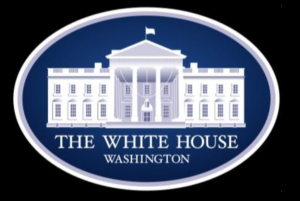Understanding the Trade War’s Impact on Interest Rates: What You Need to Know

The ongoing trade war between the U.S. and China raises critical questions about its implications for the economy — particularly regarding interest rates. At Extreme Investor Network, we delve deeper into these complexities to provide you with unique insights that transcend the conventional narratives.
The Logic Behind Rising Rates
The question arises: why is it that no one from former President Trump’s team can adequately explain the link between aggression toward China and rising interest rates? It may seem logical that if the U.S. adopts a hardline stance, China would respond by selling off U.S. bonds, thereby driving interest rates higher. Conversely, a more diplomatic approach might stabilize bond holdings and help maintain lower rates.
Remember, peace fosters collaboration, while hostility often reveals an uncomfortable truth — the notion that the Federal Reserve solely controls interest rates is increasingly being challenged. Markets, influenced by geopolitical factors, play a significant role in determining these rates.
The Challenges of Domestic Perspectives
It’s not uncommon for analysts focused only on the domestic economy to overlook international dynamics. Their forecasts may diverge sharply from those who consider how interconnected our world has become. If you’re part of the Extreme Investor Network community, you know we consider these global links essential for a well-rounded analysis.

Both China and Japan have been offloading U.S. debt, even before tariffs were enacted. As these economies struggle, they are compelled to repatriate cash — a move that can elevate long-term interest rates, a trend the Fed may not be able to curb. Trump’s belief that he can manipulate rates by dismissing Fed Chair Jerome Powell lacks historical precedent.
The Myths of Interest Rate Manipulation
There is a prevailing myth that lowering interest rates can stimulate the economy. Let’s set the record straight: historical data shows no credible evidence supporting this concept. For instance, the European Central Bank’s use of negative interest rates since 2014 has failed to revitalize its economy, often exacerbating issues like pension shortfalls and banking vulnerabilities.
At Extreme Investor Network, we advocate for a historically-informed perspective—one that challenges these assumptions.
The Broader Economic Implications
The current trade war risks pushing the U.S. economy toward stagflation, a troublesome combination of stagnant growth and rising prices. The false narrative that outsourcing is solely to blame for manufacturing decline overlooks significant factors like taxation and regulatory environments. Many businesses relocate based on operational costs rather than mere labor rates.
Having collaborated with multinational companies, I can attest that the motivations for relocation are often rooted in favorable tax policies or sustainable regulatory practices. For instance, relocating operations to North Macedonia was more advantageous due to its 25-year guarantee against tax increases— a much more flexible option compared to the stringent regulations in other parts of Europe.

Lessons from Historical Events
A historical analogy worth considering is the Crimean War (1853-1856), which disrupted grain shipments and caused U.S. wheat prices to nearly double. This historical precedent illustrates how international conflicts can have immediate domestic consequences.
The Bigger Picture: Understanding Global Interconnections
To navigate today’s economy effectively, we must acknowledge that domestic policies cannot be evaluated in isolation. Instead, they must be examined within the larger framework of international events we discuss frequently at Extreme Investor Network.
So, whether you’re an investor or simply interested in understanding the broader economic context, remember: staying informed about global economic interactions is crucial. The links between domestic policy decisions and international markets have never been more evident.
In conclusion, be sure to keep an eye on the intersection of international relations and economic policy—it’s a nexus that promises to shape market trends for the foreseeable future. Join us at Extreme Investor Network where we’re committed to providing you with nuanced perspectives that empower you to make informed investment decisions.

